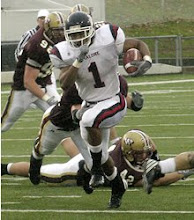
"A player that makes a team great is more valuable than a great player."The traditional approach to evaluating a basketball player focuses on key offensive and defensive statistics such as a player's points per game, field goal percentage, assists, rebounds, and blocked shots. These are undoubtedly important metrics, but they only tell part of the story.
John Wooden
Legendary UCLA basketball coach
Besides the typical statistics, players that make a team great provide many of the following intangibles:
- Leadership: inspiring, motivating, and driving the team to bring out their best
- Team orientation: willingness to sacrifice personal statistics and do what it takes (even the unglamorous dirty work) to maximize team performance
- Competitive drive: never-say-die attitude to overcome obstacles, perform when the chips are down, and achieve the team's goals
- Hustle: aggressive, high-energy pursuit of objectives
- Fungibility: flexible skill set and playing style that is adaptable to the competitive dynamics of the game
Talent and individual performances are necessary, but not sufficient, for a great team. Highly skilled teams without the intangibles are likely to resemble the 2004 US Men's Olympic basketball team (5-3 record, Bronze medal). Reducing the talent -- but adding the intangibles -- leads to the NBA champion 2007-08 Boston Celtics. Which team do you want your business to emulate?
Are you doing enough to hire, develop, evaluate, reward, and retain the employees that make your company great?
Monday Morning Actions
- Evaluate your project teams' intangible assets; add / subtract team members as required to fill gaps.
- Review hiring criteria and ensure candidates' intangible assets are explored during the recruiting process.
- Provide positive reinforcement to a subordinate or colleague that demonstrates intangible value; select mentoring candidates based on intangible assets.
- Incorporate softer intangibles into formal review processes. Ensure spikes / deficiencies are noted and impact final evaluations.
- Create a reward specifically for intangible assets (e.g., traveling "teamwork" award, spot bonuses).
- Incorporate intangibles into promotion and job assignment decisions (the more senior the role, the more important this becomes).






No comments:
Post a Comment